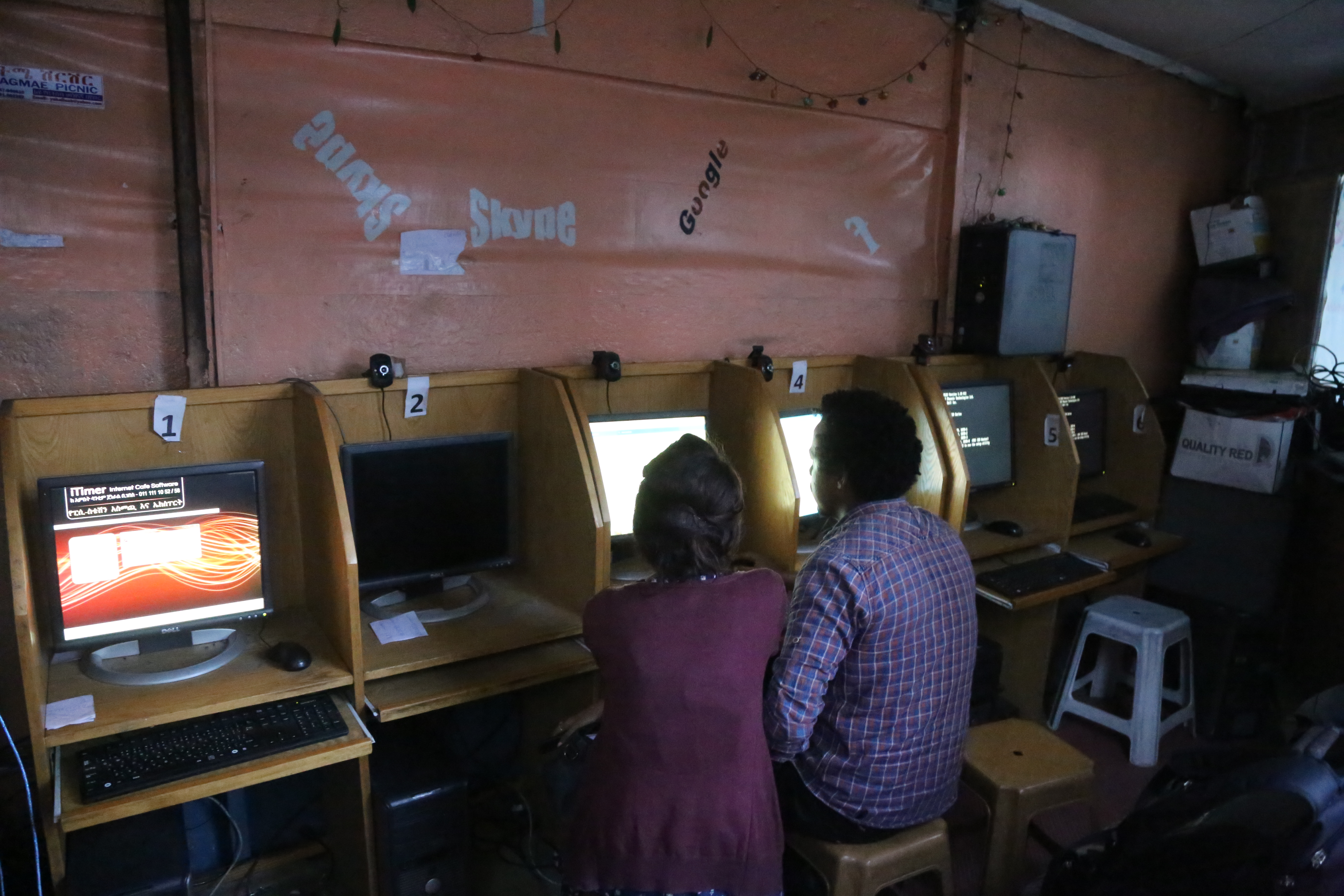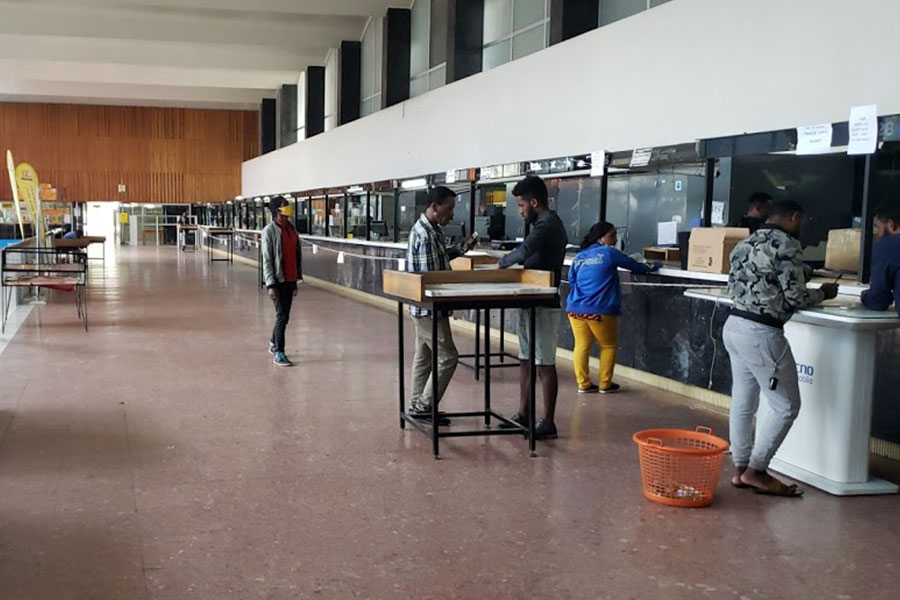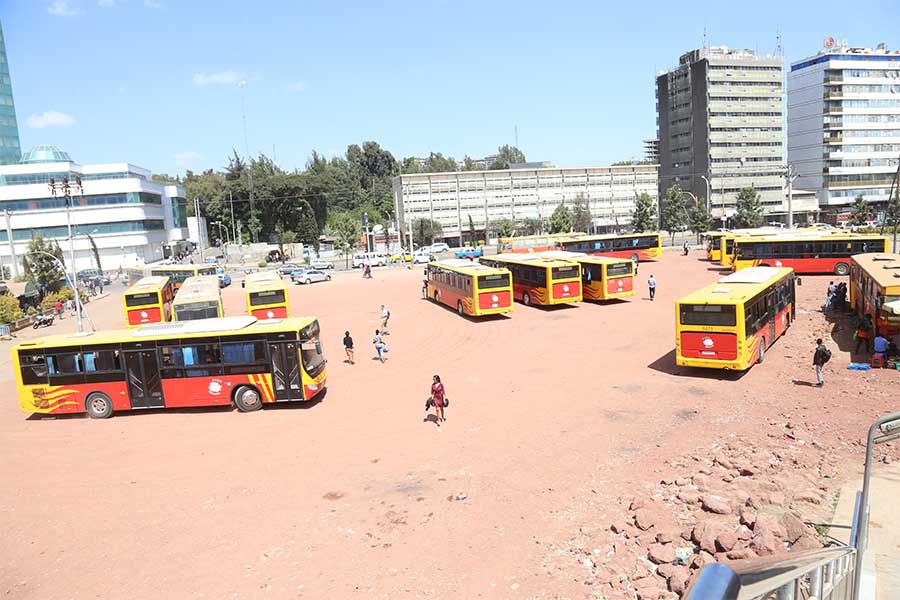
Radar | Jul 13,2019
Internet shutdowns, which occurred 13 times over the past four years, no longer just affect micro businesses such as internet cafes. An exploding internet penetration rate, at over a fifth of the population size now, is impacting thriving digital-based markets and industries, from taxi hailing cabs and delivery services to information technology firms. The consequences are affecting an ever growing portion of the population at a time when the economy is slowing, and chief among these were drivers working for taxi hailing companies.
"We tried to contact the call centre to see what options there were," said a driver that worked for the taxi hailing company RIDE, which uses GPS tracking to calculate fare prices and has now ceased operations following the internet blackout. "But we couldn't get through" to the company, continued the frustrated driver, whose income was halved in the past week.
The internet blackout occurred after the violence that followed reports of the death of Hachalu Hundessa, a musician and political activist, on June 30, 2020. It is an indefinite shutdown, and Ethio telecom makes few exceptions for businesses and government agencies.
For the tiny but developing IT industry that had been seeing encouraging results following the increasing importance of digital services during the COVID-19 pandemic and government initiatives to improve connectivity, the blackout was a rude awakening. The alternatives some have sought, such as resorting to SMS texts, are a poor substitute for the flexibility and dynamism the internet had provided, and it is "now extremely discouraging to venture into e-commerce.”
"We'll be incorporating [issues like internet shutdowns] in the plans that will follow the strategy,” was the response from the Ministry of Innovation & Technology.
Beyond the economic implications, digital rights advocacy groups insist that internet shutdowns are not long-term solutions, if not counter-productive. The content on the internet is a reflection of sentiments on the ground, argue these groups, and the answer to the political unrest should instead come through mediation.
You can read the full story here
PUBLISHED ON
Jul 13,2020 [ VOL
21 , NO
1055]

Radar | Jul 13,2019

Radar | Feb 08,2020

Radar | May 31,2025

Fortune News | Jan 26,2019

Fortune News | Apr 26,2019

Radar | Jun 21,2025

Radar | Dec 17,2022

Agenda | Nov 27,2018

Fortune News | Oct 08,2022

Fortune News | Dec 21,2019

Dec 22 , 2024 . By TIZITA SHEWAFERAW
Charged with transforming colossal state-owned enterprises into modern and competitiv...

Aug 18 , 2024 . By AKSAH ITALO
Although predictable Yonas Zerihun's job in the ride-hailing service is not immune to...

Jul 28 , 2024 . By TIZITA SHEWAFERAW
Unhabitual, perhaps too many, Samuel Gebreyohannes, 38, used to occasionally enjoy a couple of beers at breakfast. However, he recently swit...

Jul 13 , 2024 . By AKSAH ITALO
Investors who rely on tractors, trucks, and field vehicles for commuting, transporting commodities, and f...

Jul 12 , 2025
Political leaders and their policy advisors often promise great leaps forward, yet th...

Jul 5 , 2025
Six years ago, Ethiopia was the darling of international liberal commentators. A year...

Jun 28 , 2025
Meseret Damtie, the assertive auditor general, has never been shy about naming names...

Jun 21 , 2025
A well-worn adage says, “Budget is not destiny, but it is direction.” Examining t...